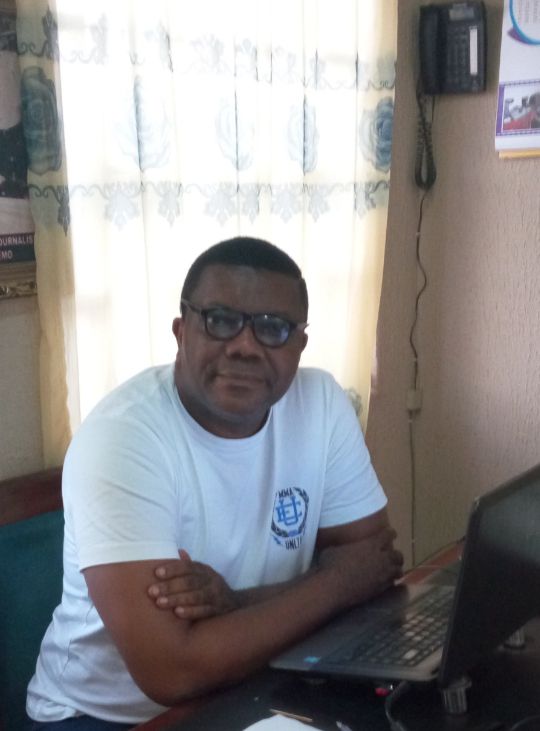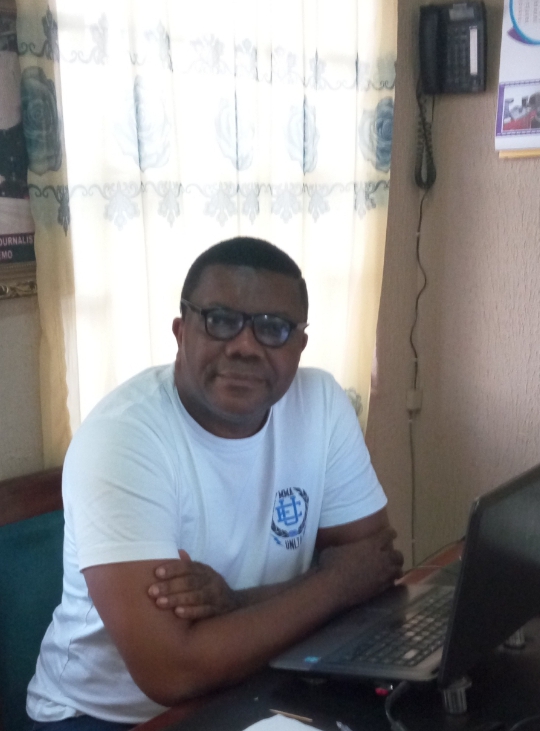By Karen James
My piece here is anchored on what Mr Jude Atupulazi, Editor-in-Chief of Fides Newspaper, wrote recently about the abuse of prayers by Nigerians. in his words, “I’ve not seen a country where prayers have been abused as in Nigeria. Any little thing that happens, the masses are enjoined to pray, even when they can act and do something. After the killing of his people in Nimbo, former Enugu State gov, Ifeanyi Ugwuanyi, could only urge his people to pray, rather than take proactive action to go after the killers.
While politicians loot the country dry, the churches ask the masses to pray for their leaders.
Now it has permeated our football. Before major games by the national teams, fans are asked to pray, even when prayers have zero effect on results. This is the amazing aspect. Games are won by better prepared teams; not better praying teams.
And so before Nigeria played against South Africa last Friday, the coach, Finidi George, called for prayers. The players even prayed on the pitch before the game. But in the end they were lucky not to lose against a team that didn’t pray. It ended 1-1.
I don’t really know how we got here. Praying is good but not when you can do something by yourself. A trader who goes to a prayer house and shouts, claps and jumps all day will remain poor as long as he doesn’t put commensurate effort in his business. He’s only boosting the business of the pastor in whose shop (church) he spends his daytime praying.
We are too religious in this country for our own good. And the hypocrisy of it all is that despite Nigeria struggling with Ghana to be the praying capital of Africa, this is a country where all manner of criminality thrives.
On Mondays if you go to Onitsha Main Market in the morning you’ll be forced to wait till they finish prayers. Yet, the first trader you meet after the prayers will probably cheat you if you’re not careful.
Even most civil servants pray in their offices but will expect to be bribed before attending to your file. Lecturers pray but most of them will seek gratification before supervising your project and may even demand sex from female students in favour of good grades.
Even our terrible politicians pray at rallies and at meetings. They rig elections and go to church for thanksgiving and are eulogised by pastors who may turn out in their numbers for what they can get .
It is attitudes such as I’ve mentioned that tend to dissuade some people from being religious in this country.
Surely, we need to be reoriented fast before we completely lose it.
Nigeria, land of prayers indeed!”
Now read…. Amb Karen James said in her words that In a nation where prayers have become a crutch for action, Nigeria finds itself grappling with the consequences of misplaced faith. From politicians to football teams, the cry for divine intervention has permeated every facet of society, leaving a trail of unfulfilled promises and spiritual dependence.
It is a lamentable trend that has entrapped the masses in a cycle of hope, perpetuating a culture of inaction. As noted by Mr Atupulazi, Former Enugu State Governor, Ifeanyi Ugwuanyi, after the devastating killings in Nimbo, chose to rely solely on prayers instead of taking proactive measures to apprehend the culprits. This pattern of praying without taking tangible action has left many wondering how Nigeria arrived at this point.
Politicians have capitalised on this misplaced faith, looting the country dry while churches ask the masses to pray for their leaders. The irony cannot be ignored—praying for leaders who have betrayed the trust of the people, only further perpetuating a system of corruption.
Even within the realm of sports, again as noted by Mr Atupulazi, Nigeria’s football teams have not been immune to the allure of prayers. Prior to major games, fans are encouraged to seek divine intervention, despite the fact that victory ultimately rests upon the preparation and skill of the players. Resultantly, Nigeria finds itself on a precarious path, where success relies more on a well-prepared team than on fervent prayers.
The overreliance on prayers extends beyond politics and sports. It infiltrates the everyday lives of Nigerians, hindering progress and leaving room for exploitation. Traders spend their days in prayer houses, expecting divine intervention to uplift their businesses, yet fail to recognize that their own effort is essential for success. The hypocrisy is palpable as individuals who pray for prosperity are often the same ones who engage in fraudulent activities, deceiving unsuspecting customers and damaging the reputation of honest traders.
Even within the confines of bureaucratic institutions, prayers have become a mere facade. Civil servants offer prayers in their offices but demand bribes to perform their duties effectively, betraying the trust bestowed upon them. Lecturers, too, fall prey to this twisted paradigm, demanding gratification and even sexual favors in exchange for good grades. The veneer of spirituality provides an illusion of righteousness, blinding individuals to the moral compass they should adhere to.
As Nigeria vies with Ghana for the title of the praying capital of Africa, as noted, it is crucial to reflect on the dissonance between faith and action. This nation, supposedly filled with prayer warriors, is plagued by rampant criminality, exposing the hollowness of our spiritual practices. Praying without good work is an empty gesture, devoid of the soul and substance that true faith should possess. It is high time for Nigeria to confront this detrimental mindset and embark on a journey of genuine self-improvement.
Religion can undoubtedly serve as a powerful force for good, offering hope and solace in times of despair. However, when prayers become a crutch for complacency and replace the need for personal responsibility, the true essence of faith is distorted. Nigeria must shake off the shackles of empty prayers and prioritise action, integrity, and accountability. Only then can a nation once known for its religious devotion reclaim its true identity and pave the way for a brighter future.


